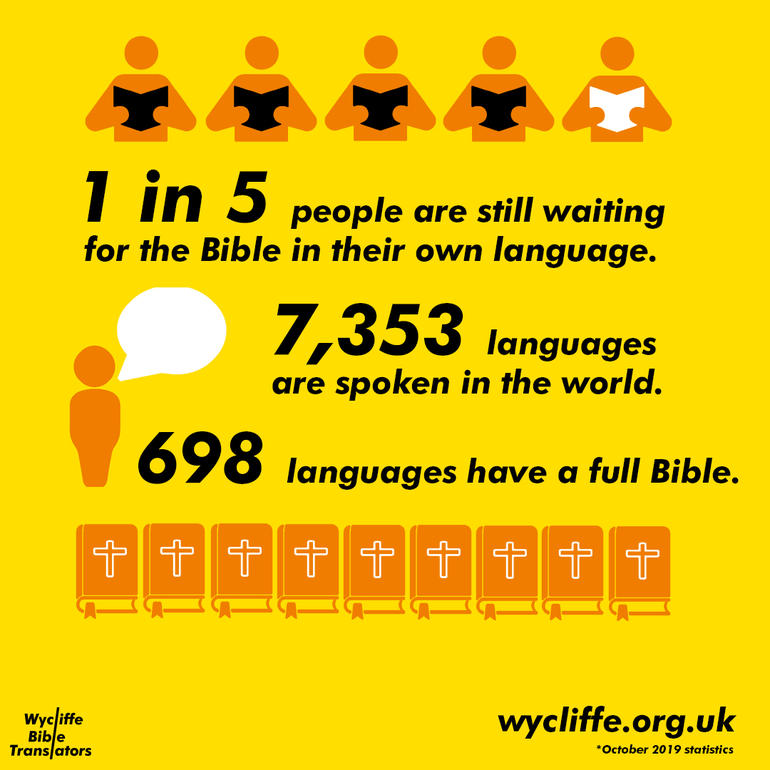The organisation said that amounts to 3,969 languages that are yet to reach the Bible.
James Poole, executive director of Wycliffe, said this shows there's still much work to do.
"That's why Wycliffe continues to work with urgency to translate God's word into all these languages."
Despite this, Wycliffe's annual figures show a lot of progress.
Among the highlights are that 698 languages now have the complete Bible (up from 683 in 2018), and that 1,548 languages have a complete New Testament (up from 1,534).
A further 1,138 have some translated portions of the Bible (up from 1,133).
Peter Brassington, who compiles the statistics said: "These are encouraging figures, and represent the tremendous work that translation teams are doing across the world.
"Changes year to year don't always look dramatic on the surface, but Bible translation requires dedicated, long-term effort, and the translations finished now often started many years ago. I joined Wycliffe in 1996: the number of languages in which there is a complete Bible has doubled in that time."
Wycliffe said there is also active translation or preparatory work going on in 2,617 languages in 161 countries.
Poole said every time a translation is completed, it's a momentous occasion.
"Yet again, we have seen that when people get their New Testament or Bible in their language, it makes such a difference," he said.
"Seeing the joy and excitement at the dedications of the Keliko, Wamey and Nyakyusa New Testaments in this past 12 months reminds me how much it means to people to have the Scriptures in their language.
"As people read the word of God with full understanding so they are transformed in a far deeper way.'
According to the statistics, the number of active languages (including Sign Languages) in the world stands at 7,353.
Stay up to date with the latest news stories from a Christian perspective. Sign up to our daily newsletter and receive more stories like this straight to your inbox every morning.





